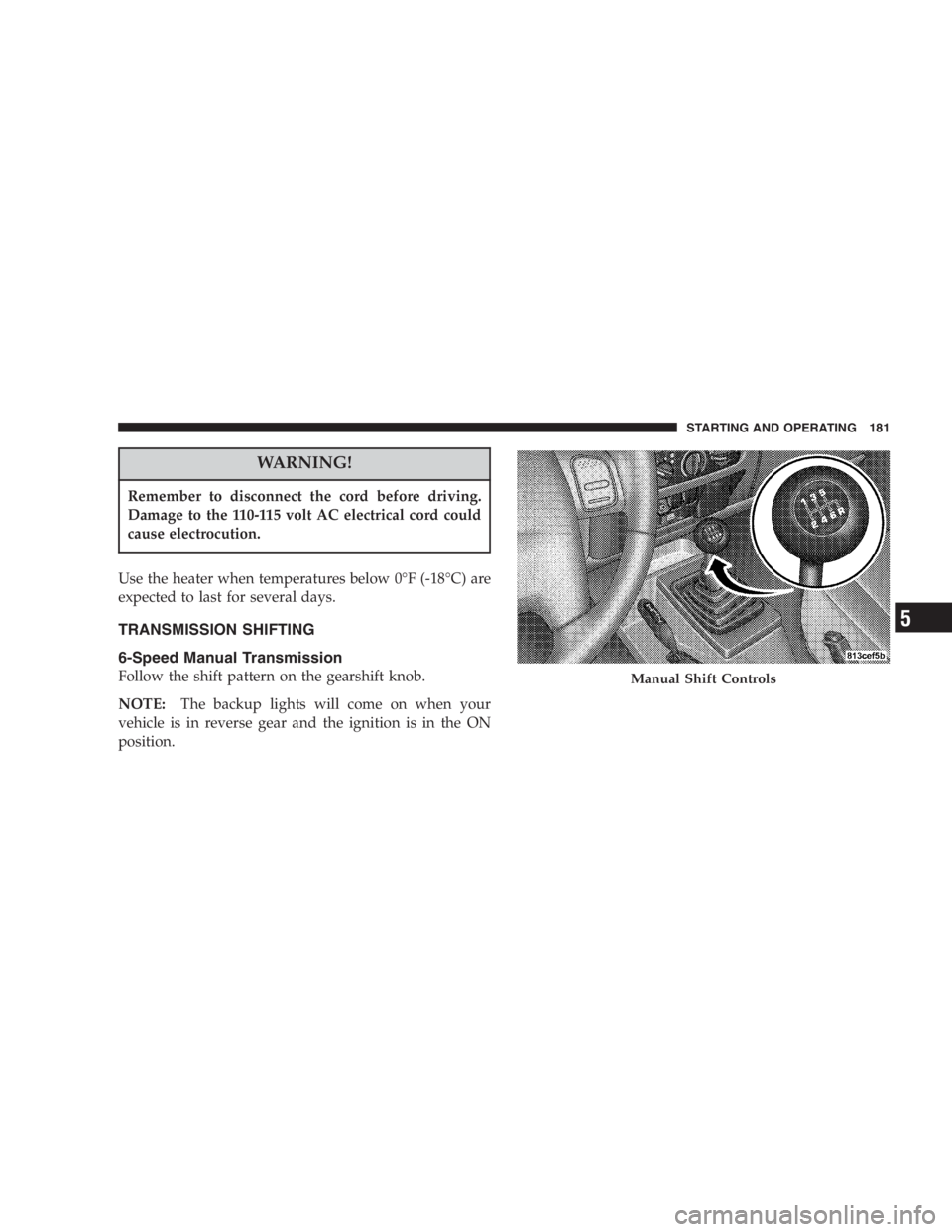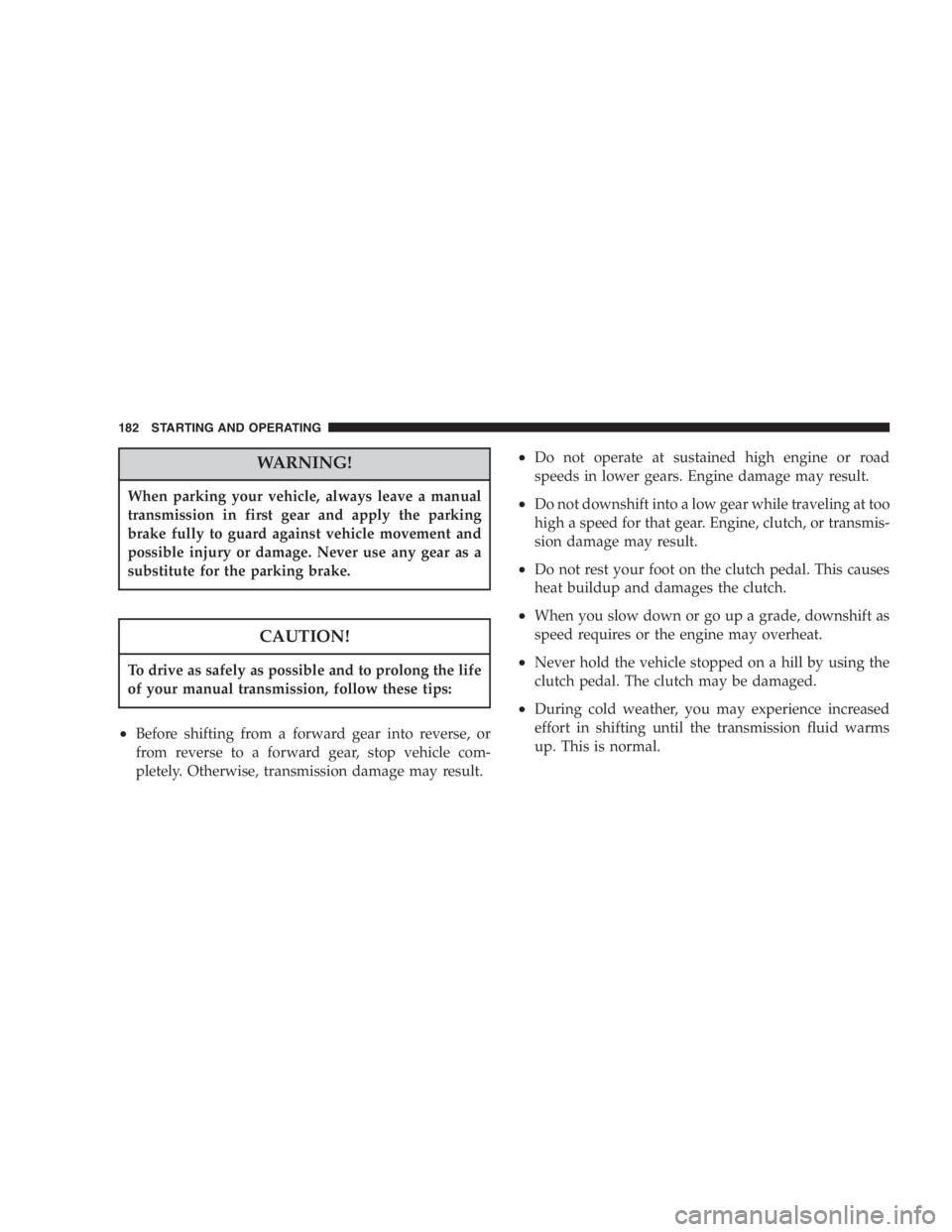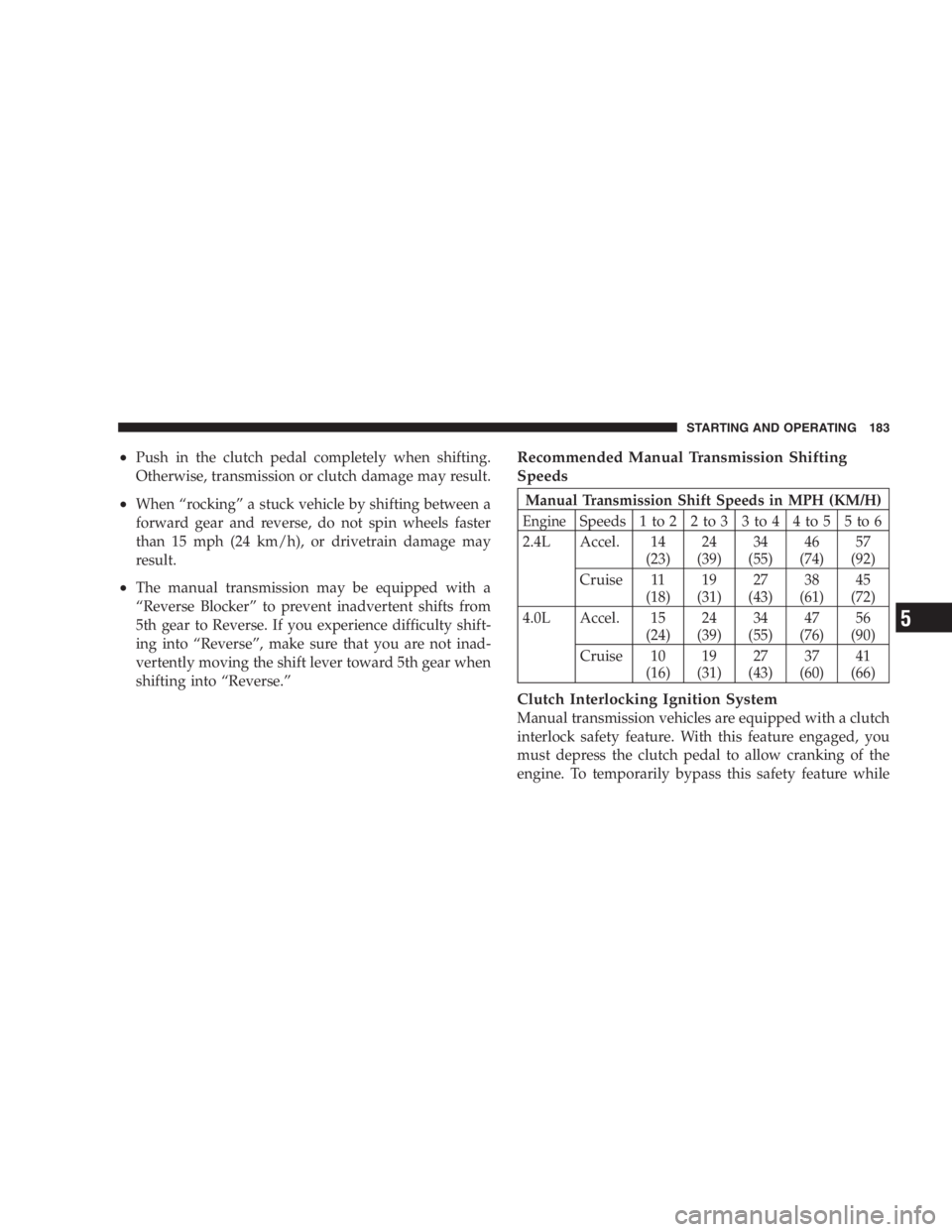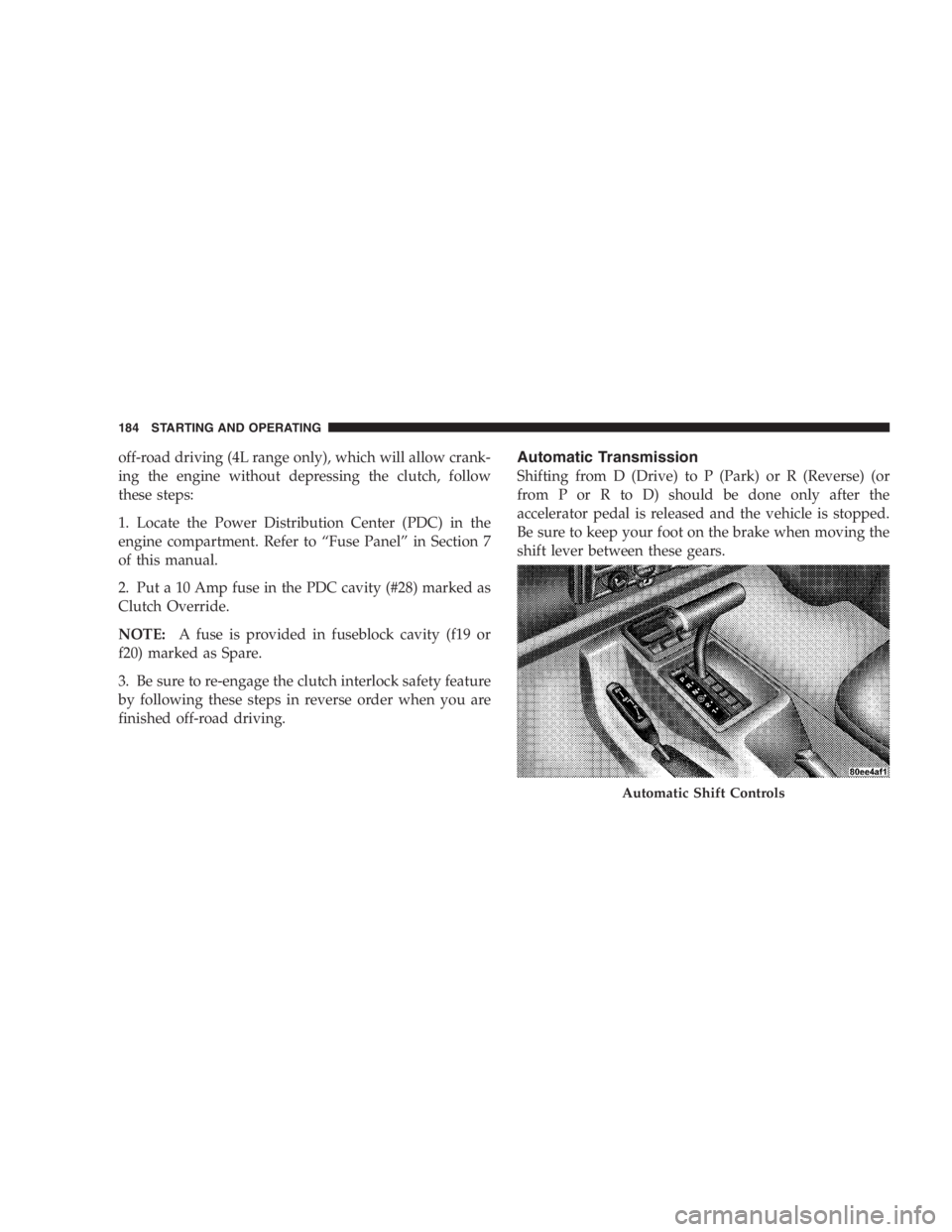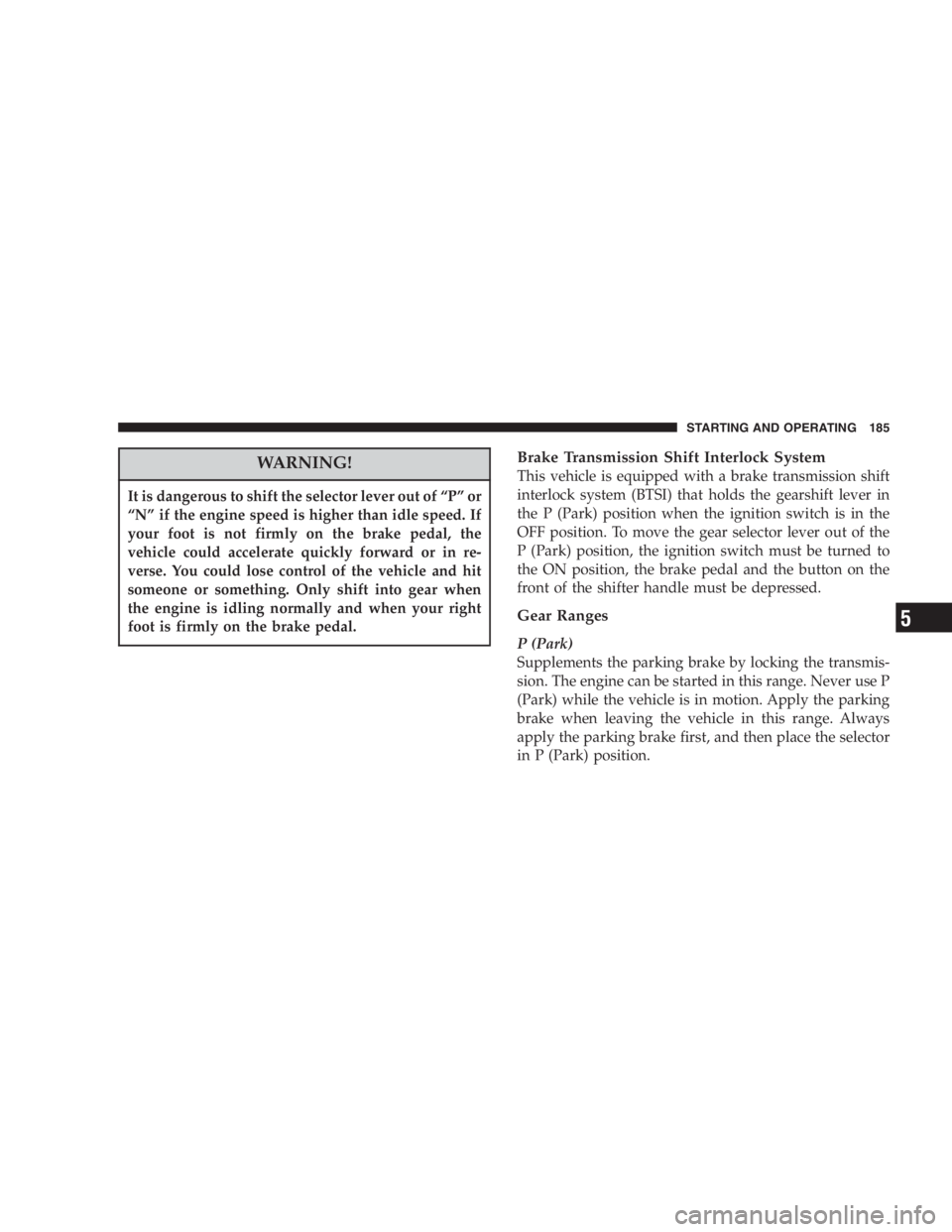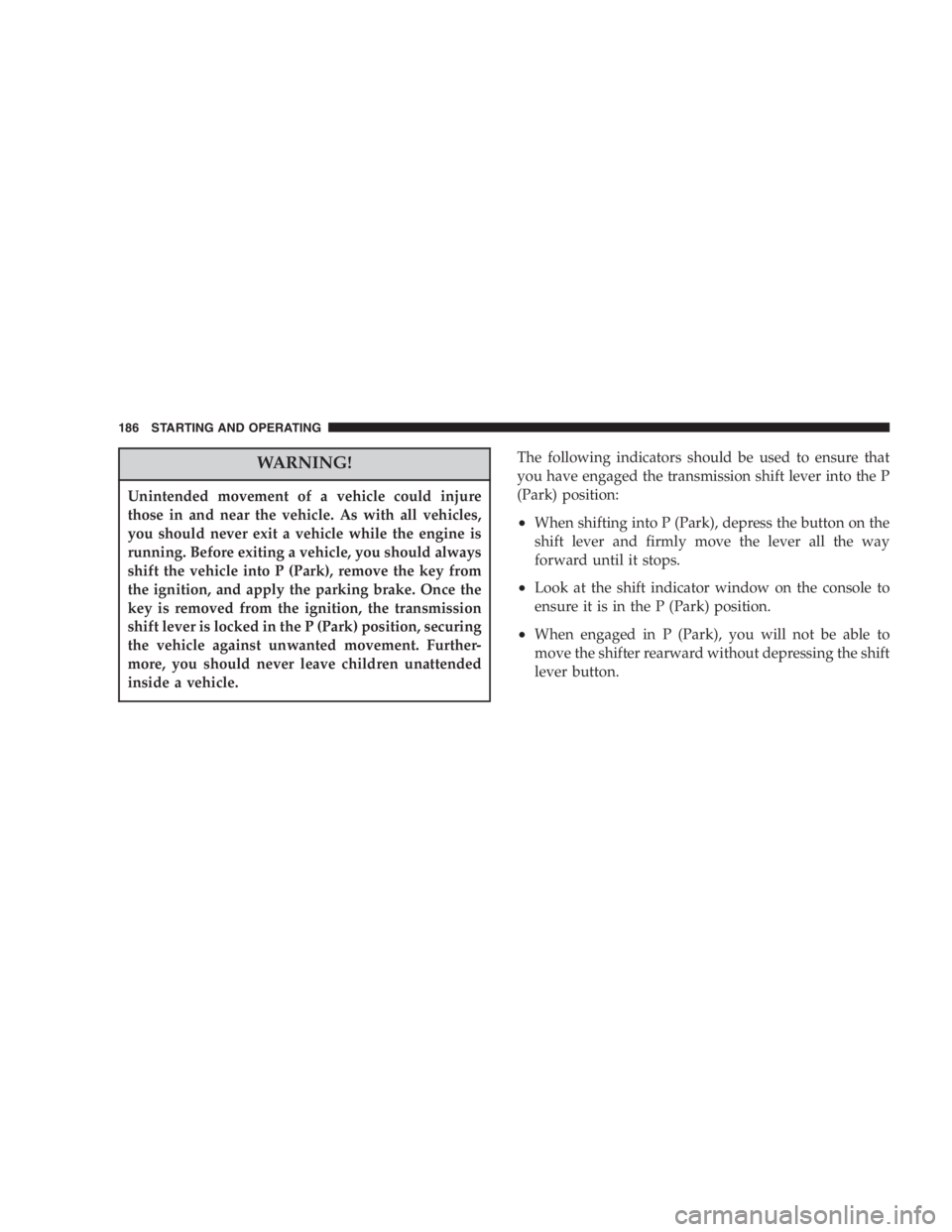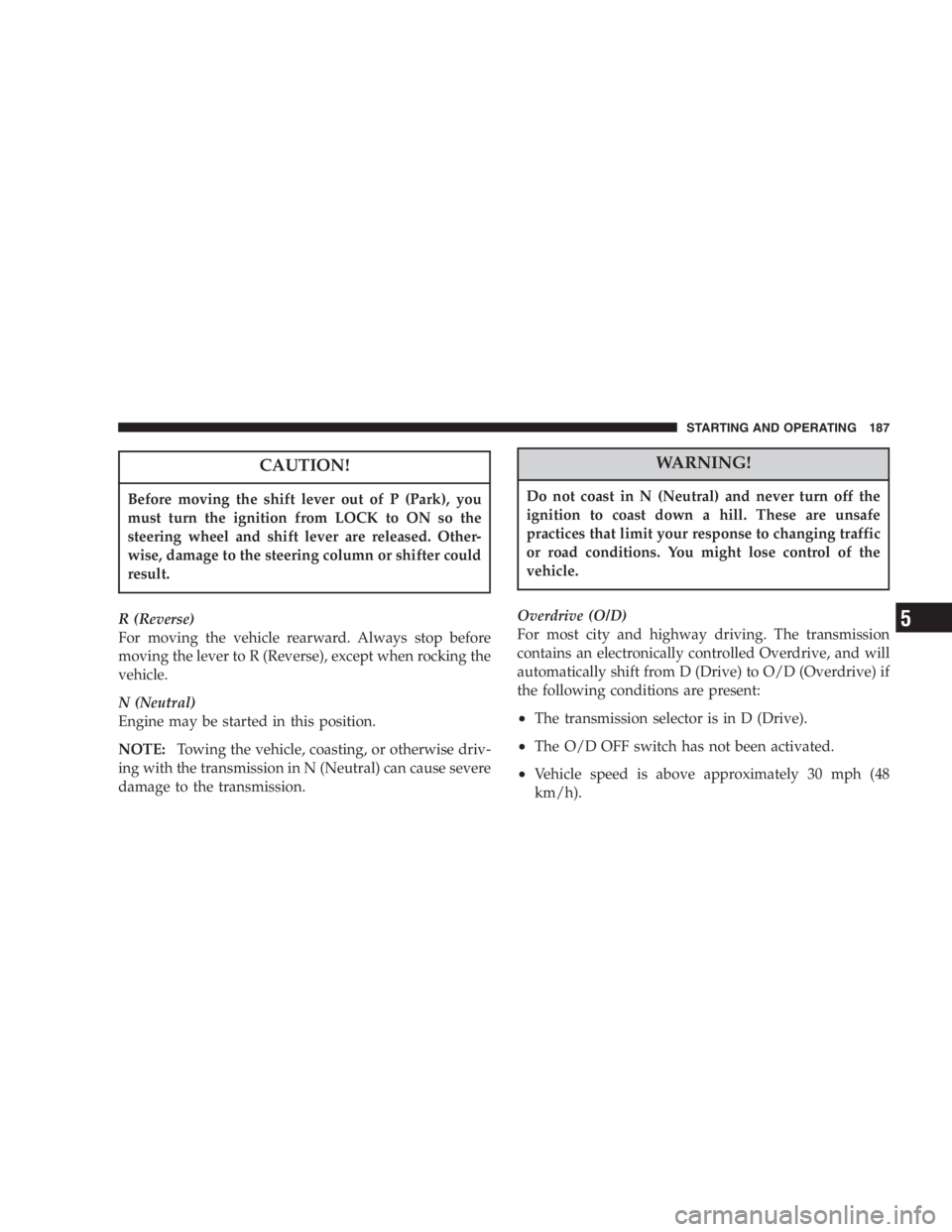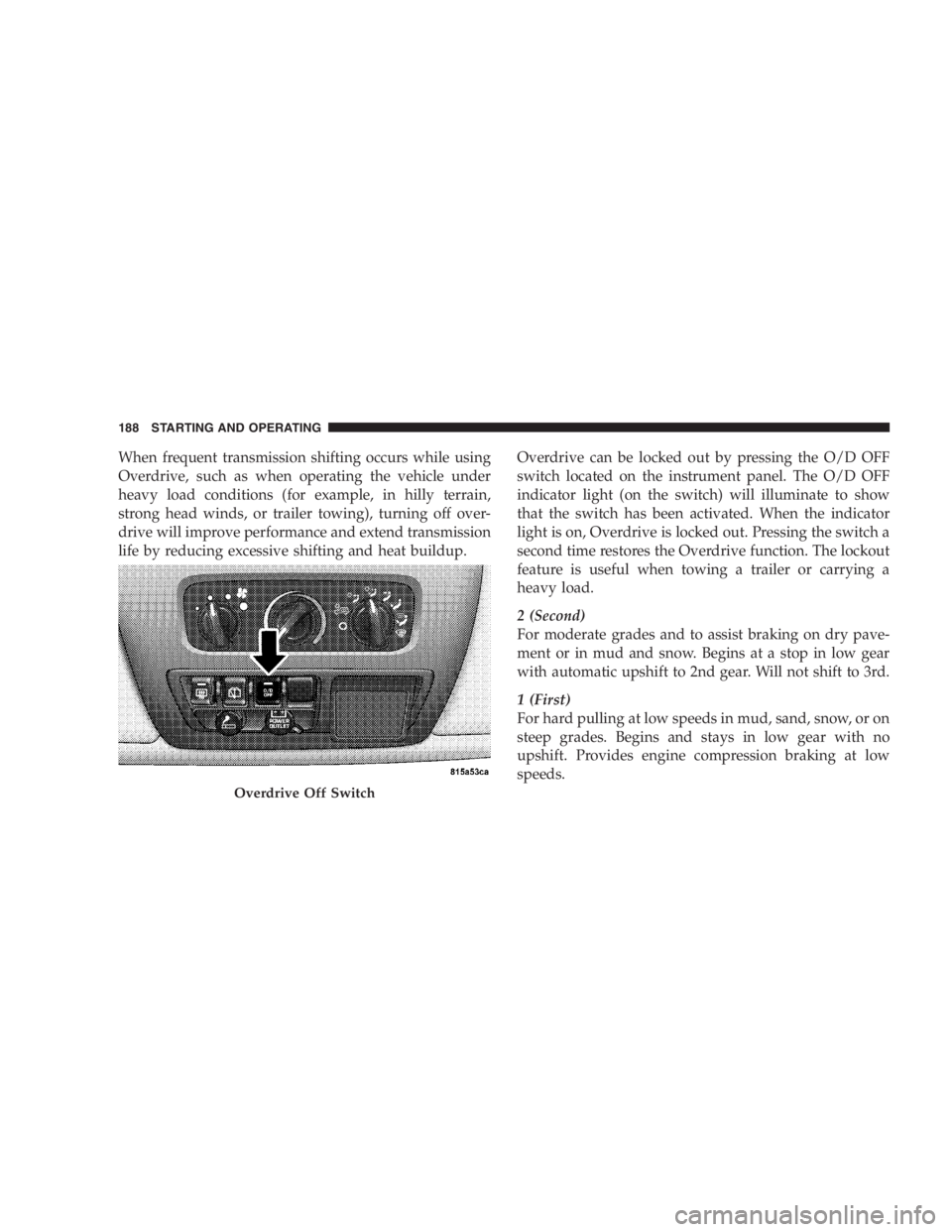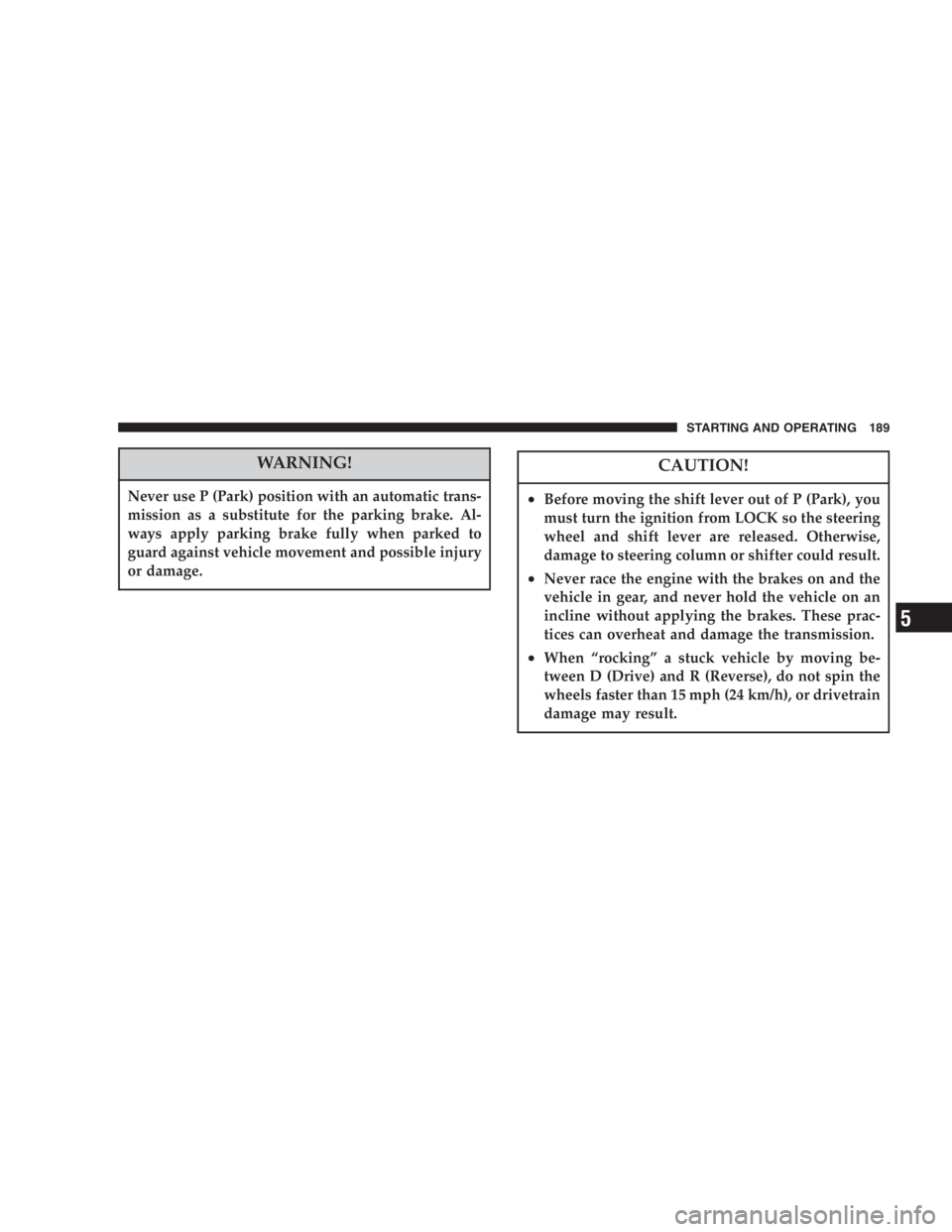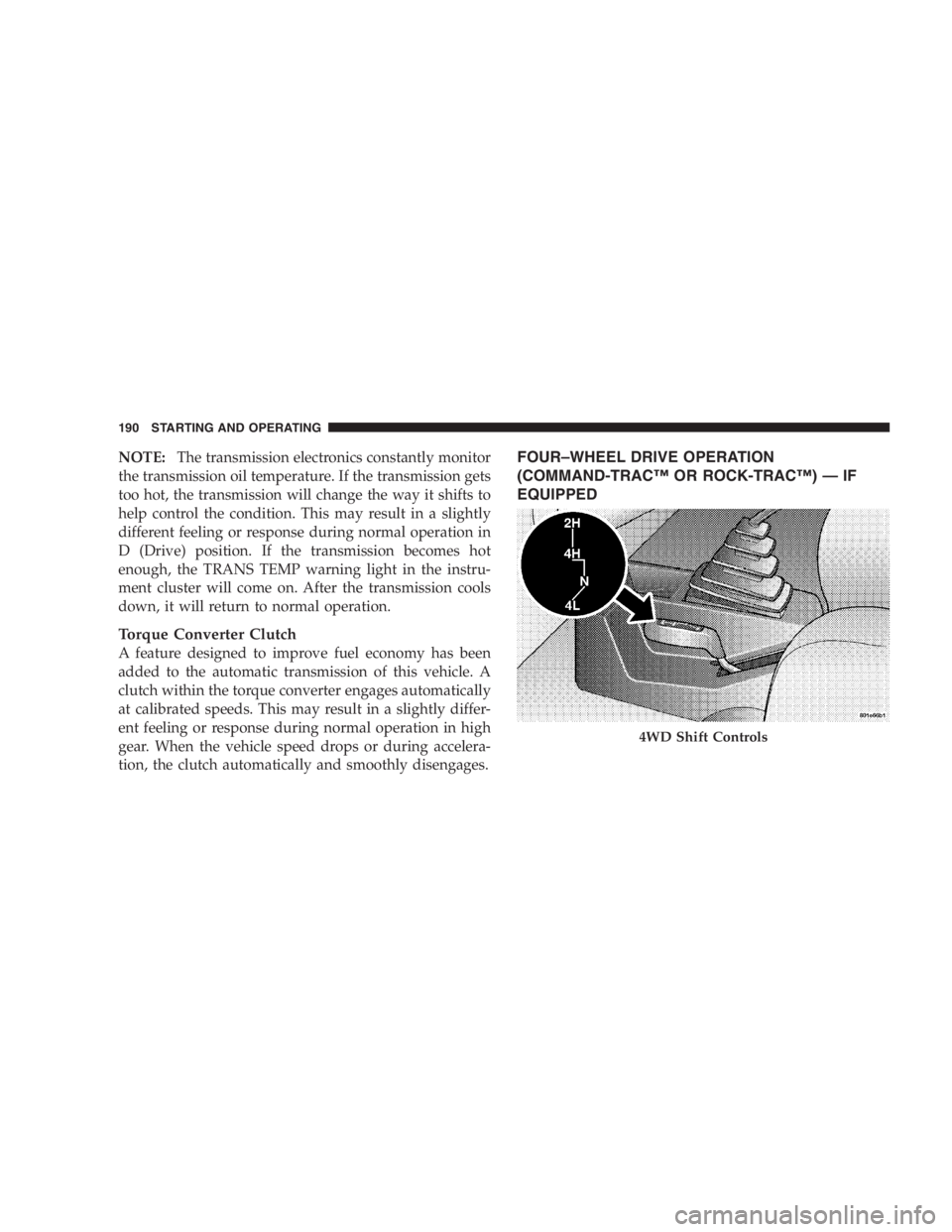JEEP WRANGLER 2002 Owners Manual
WRANGLER 2002
JEEP
JEEP
https://www.carmanualsonline.info/img/16/56067/w960_56067-0.png
JEEP WRANGLER 2002 Owners Manual
Trending: glove box, catalytic converter, oil change, radiator cap, heating, parking brake, oil capacity
Page 181 of 1056
Fluid level should be checked on a level surface with
the engine off to prevent injury from moving parts,
and to insure accurate fluid level reading. Do not
overfill. Use only the manufacturer’s recommended
fluid.
Page 182 of 1056
Page 183 of 1056
Commercial windshield washer solvents are flam-
mable. They could ignite and burn you. Care must
be exercised when filling or working around the
washer solution.
You or others can be badly burned by hot antifreeze/
coolant or steam from your radiator. If you see or
hear steam coming from under the hood, don’t open
the hood until the radiator has had time to cool.
Never try to open a cooling system pressure cap
when the radiator or coolant bottle is hot.
Engine Coolant Checks
Check antifreeze/coolant protection every 12 months
(before the onset of freezing weather, where applicable).
If antifreeze/coolant is dirty or rusty in appearance, the
266 MAINTAINING YOUR VEHICLE
Page 184 of 1056
Page 185 of 1056
Adding Engine Coolant
Your vehicle has been built with an improved antifreeze/
coolant that allows extended maintenance intervals. This
antifreeze/coolant can be used up to 5 Years or 100,000
miles before replacement. To prevent reducing this ex-
tended maintenance period, it is important that you use
the same antifreeze/coolant throughout the life of your
vehicle. Please review these recommendations for using
Hybrid Organic Additive Technology (HOAT)
antifreeze/coolant.
When adding antifreeze/coolant, a minimum solution of
50% recommended Mopar Antifreeze/ Coolant 5 Year/
100,000 Mile Formula HOAT (Hybrid Organic Additive
Technology), or equivalent, in water should be used. Use
higher concentrations (not to exceed 70%) if temperatures
below -34°F (-37°C) are anticipated.
268 MAINTAINING YOUR VEHICLE
Page 186 of 1056
The warning words DO NOT OPEN HOT on the
cooling system pressure cap are a safety precaution.
Never add antifreeze/coolant when the engine is
overheated. Do not loosen or remove the cap to cool
an overheated engine. Heat causes pressure to build
up in the cooling system. To prevent scalding or
injury, do not remove the pressure cap while the
system is hot or under pressure.
Disposal of Used Engine Coolant
Used ethylene glycol based antifreeze/coolant is a regu-
lated substance requiring proper disposal. Check with
your local authorities to determine the disposal rules for
your community. To prevent ingestion by animals or
MAINTAINING YOUR VEHICLE 269
Page 187 of 1056
Page 188 of 1056
Page 189 of 1056
Riding the brakes can lead to brake failure and
possibly an accident. Driving with your foot resting
or riding on the brake pedal can result in abnormally
high brake temperatures, excessive lining wear, and
possible brake damage. You wouldn’t have your full
braking capacity in an emergency.
Brake and Power Steering System Hoses
When servicing the vehicle for scheduled maintenance,
inspect surface of hoses for evidence of heat and me-
chanical damage. Hard and brittle rubber, cracking, tears,
cuts, abrasion, and excessive swelling suggest deteriora-
tion of the rubber. Particular attention should be made to
examining those hose surfaces nearest to high heat
sources, such as the exhaust manifold.
Inspect all hose clamps and couplings to make sure they
are secure and no leaks are present.
NOTE:Inspection of brake hoses should be done when-
ever the brake system is serviced and every engine oil
change.
272 MAINTAINING YOUR VEHICLE
Page 190 of 1056
Worn brake hoses can burst and cause brake failure.
You could have an accident. If you see any signs of
cracking, scuffing, or worn spots, have the brake
hoses replaced immediately.
Brake Master Cylinder
The fluid level in the master cylinder should be checked
when performing under hood services, or immediately if
the BRAKE warning light shows system failure
Be sure to clean the top of the master cylinder area before
removing the cap. If necessary, add fluid to bring the
fluid level up to the requirements described on the brake
fluid reservoir. With disc brakes, fluid level can be
expected to fall as the brake pads wear. Brake fluid level
Trending: low oil pressure, key, recommended oil, door lock, ignition, weight, ECO mode
